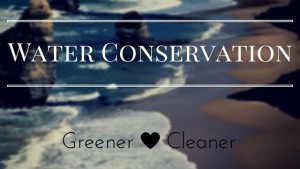Like all other natural resources, we need to manage water use so the supply remains sustainable. According to the United Nations Development Program (UNDP) more than one billion people – that’s one in six people in this world – have no access to clean and safe drinking water!
By sealing up that water leak or repairing a drip, you could be saving up to thousands of gallons of water annually. That’s an astonishing amount of unnecessary waste. Be aware that if your leak is coming from the hot water tap, you are not only wasting water but energy and money as well.
Did you know that a 1 mm stream wastes 100 liters of water in 24 hours and 3,000 liters in one month?
The best way to determine how much water is being wasted from your tap is to test it yourself. So turn your tap on just so it drips and collect the water in a measuring cup, let it drip for an hour and then see how much it has collected in the cup, multiply that by 24 hours and you’ll be able to determine how much water is wasted.
By not repairing leaks, you may also be subjecting your home and personal belongings to severe water damage that could also contribute to mold growth. Identifying and repairing your leak will reduce the amount of water wasted in your home and further save you money! Every drop counts; water leaks waste money and that is a fact.
Reduce calcium, magnesium and other metal cations in hard water by installing a water softener. A water softener is a worthwhile investment. Let me tell you why.
Over time, magnesium and calcium in hard water can clog pipes and shower-heads; furthermore, your soap and detergent will not dissolve properly in hard water, which may lead to unnecessary clogs in your pipes.
According to an old friend, Frank Sloan, also Canada’s first Culligan Man and inventor of the world’s first automatic water softener, installing a water softener is beneficial for many reasons.
– “Calcium is harder than your skin and clogs your pores. Soft water is easier on your hair and leaves your dishes and glassware to sparkle and shine.” Frank Sloan, inventor
Installing a water softener helps to protect your appliances from corrosion and scale build-up and overall, it just feels better on your skin.
Here are just a few more benefits of installing a soft water system:
· Reduces the amount of cleaning you have to do because soft water won’t leave ugly stains on sinks, shower tiles, and faucets.
· Helps people who suffer with dry skin, dandruff or eczema
· Adds no salt
· Reduces scale deposits on all water heating elements
· Longer life span of water heaters
· Less clogging of water pipes
· Unblocked showerheads
The installation of a water softener will remedy your hard water problems and you will get immediate results with the overall quality of your water. Don’t wait for your pipes to clog up your drain with excess waste.
We are all quite aware that you should not pour unwanted grease, coffee grounds and thick liquids down the drain, but it most certainly does happen. I am guilty of this! Regular use of a non-toxic drain cleaner will help to eat away at all of the fats, oils, and other wastes that clog up your drains so they don’t build up.
Chemical drain cleaners are some of the most toxic cleaners out there. Many drain openers contain sodium hydroxide(also known as lye and caustic soda). It’s highly corrosive, can burn eyes, skin and lungs and is a respiratory irritant. -David Suzuki
By purchasing a drain cleaner such as BioChoiceES that contains living microbial organisms, you’ll only need to apply just two ounces at a time, per month, to melt away any fat or grease that may have collected. This environmentally friendly formula will remove those unwanted drain substances in no time.
The best option though is to use plunger or snake, or try a home remedy with food-grade ingredients!
Here are a few natural, simple techniques to clear a clogged drain:
1. Pour ½ cup of salt down the drain followed by boiling water. Continue to flush with very hot tap water until the clog is clear.
2. Pour ¼ cup of concentrated white vinegar down the drain and let stand overnight.
3. Pour a cup of plain yogurt (without fruit) down the drain and leave it there overnight – this natural enzyme will eat away at the yucky build up.
Clogged drains need immediate attention; a big mess can quickly arise out of a clogged drain.
For further reading, check out David Suzuki’s – How to Unclog a Drain.
LIKE Greener Cleaner on Facebook and thanks for supporting your local, green cleaners and avid environmentalists!
Contact:
Melanie Vollick
www.greenercleaner.ca
705-422-2075

